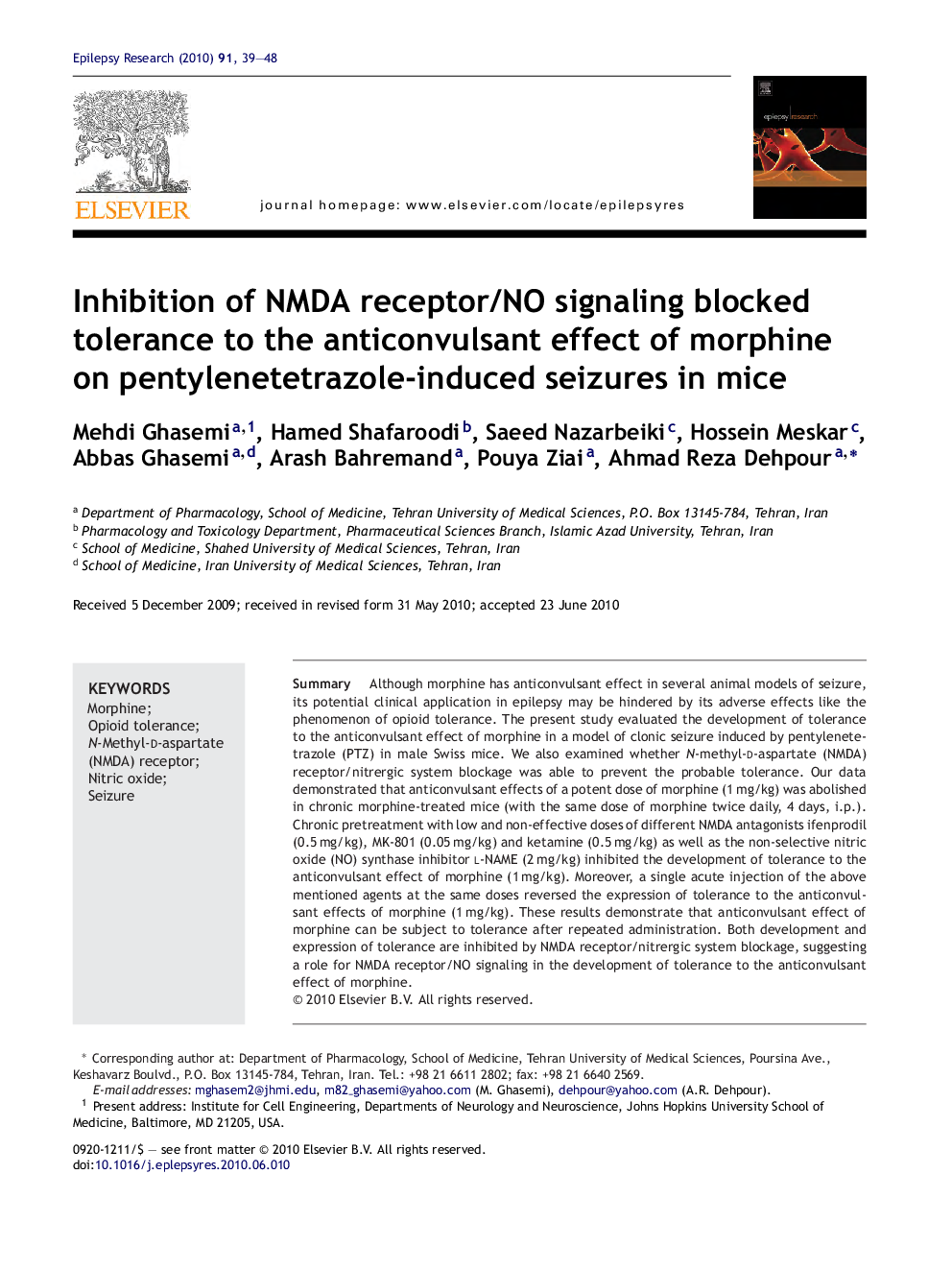| Article ID | Journal | Published Year | Pages | File Type |
|---|---|---|---|---|
| 3052479 | Epilepsy Research | 2010 | 10 Pages |
SummaryAlthough morphine has anticonvulsant effect in several animal models of seizure, its potential clinical application in epilepsy may be hindered by its adverse effects like the phenomenon of opioid tolerance. The present study evaluated the development of tolerance to the anticonvulsant effect of morphine in a model of clonic seizure induced by pentylenetetrazole (PTZ) in male Swiss mice. We also examined whether N-methyl-d-aspartate (NMDA) receptor/nitrergic system blockage was able to prevent the probable tolerance. Our data demonstrated that anticonvulsant effects of a potent dose of morphine (1 mg/kg) was abolished in chronic morphine-treated mice (with the same dose of morphine twice daily, 4 days, i.p.). Chronic pretreatment with low and non-effective doses of different NMDA antagonists ifenprodil (0.5 mg/kg), MK-801 (0.05 mg/kg) and ketamine (0.5 mg/kg) as well as the non-selective nitric oxide (NO) synthase inhibitor l-NAME (2 mg/kg) inhibited the development of tolerance to the anticonvulsant effect of morphine (1 mg/kg). Moreover, a single acute injection of the above mentioned agents at the same doses reversed the expression of tolerance to the anticonvulsant effects of morphine (1 mg/kg). These results demonstrate that anticonvulsant effect of morphine can be subject to tolerance after repeated administration. Both development and expression of tolerance are inhibited by NMDA receptor/nitrergic system blockage, suggesting a role for NMDA receptor/NO signaling in the development of tolerance to the anticonvulsant effect of morphine.
